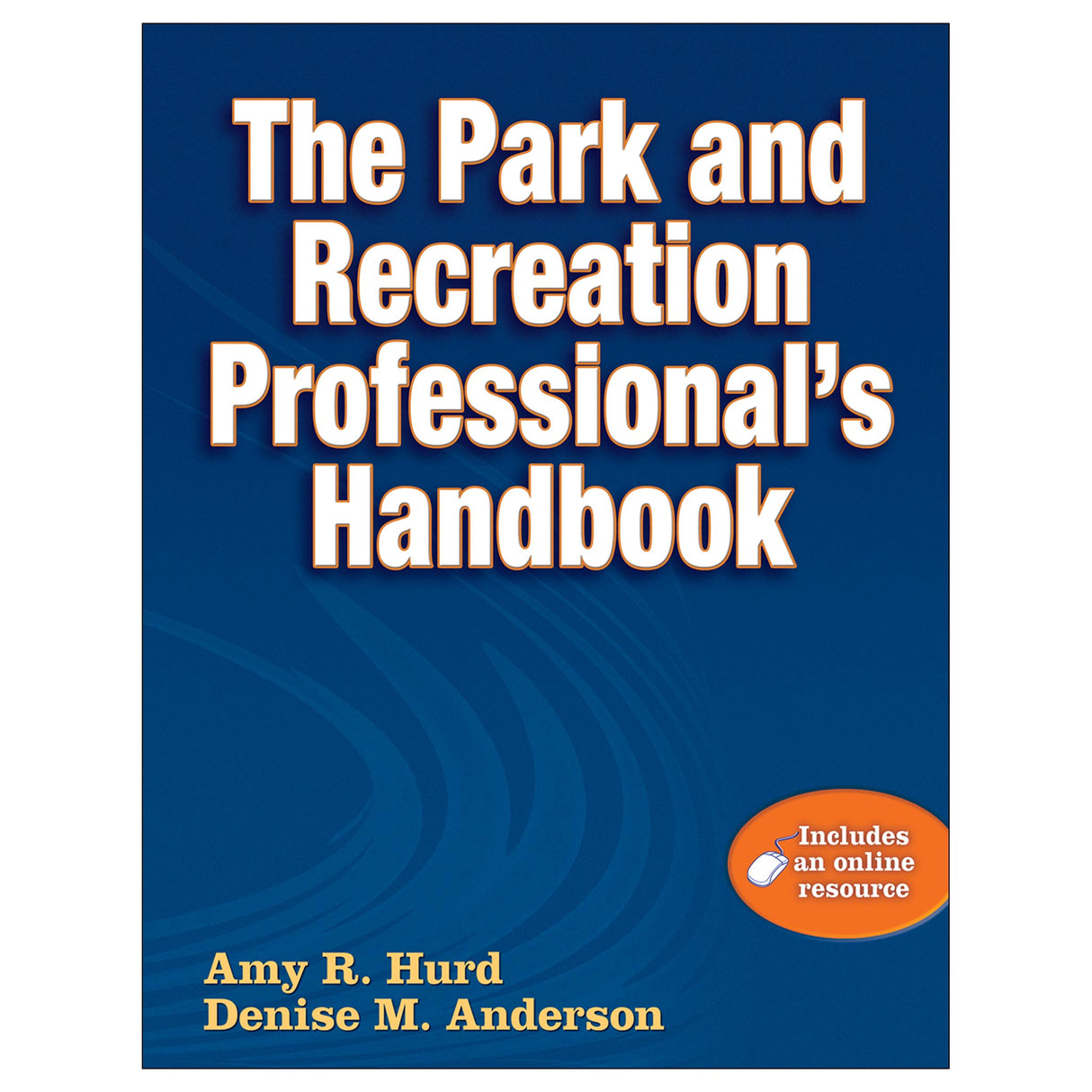Park and Recreation Professional's Handbook With Online Resource, The
Author: Amy R. Hurd, Denise M. Anderson
$29.00 CAD
Continuing education and development are of the utmost importance if you want to advance in the field. Whether you’re a graduating student or a new professional preparing for certification or a veteran practitioner looking to update your knowledge of current best practices, The Park and Recreation Professional’s Handbook is the one resource you will need.
The Park and Recreation Professional’s Handbook offers the following features:
•A thorough grounding in all areas of programming, operations management, and administration that will serve as the foundation for success in the profession
•Real-world examples from a variety of commercial, nonprofit, and public-sector agencies that will help students better understand the concepts and provide professionals with fresh ideas that they can use in their own agencies
•Recent research integrated into each chapter, which ensures that readers have the latest information available on each topic
•An online resource with sample documents from real-world agencies, learning activities, and research assignments that assist readers in applying the information to the profession
•An overview of the history and theoretical background of the profession and a discussion of ethics and professional conduct
This comprehensive resource addresses all of the essential topics that professionals must know, including program planning and evaluation, facility management, human resources, marketing, budgeting and financial planning, and policy making. Each chapter seamlessly blends foundational concepts, the latest research, and real-world examples to offer complete and current coverage of the topics in an easy-to-read format. To make studying easier for those preparing for certification, the chapters follow the topical areas covered in the exam. However, the book goes beyond what’s required for passing the exam: It presents readers with a complete picture of all of the skills needed for success in the field, making it a perfect resource for professionals who want to refresh their understanding of individual topics.
Prepare for your future in the field with The Park and Recreation Professional’s Handbook. Its straightforward explanations of key topics make it a resource that you’ll keep in your library long after you’ve earned your certification.
Audience
A textbook for undergraduate capstone courses in recreation; a resource for students or professionals preparing for professional certification. Also a professional reference for those working in public park and recreation agencies.
Chapter 1: Introduction and Overview
History of the Field
Philosophical Underpinnings
Definitions of Leisure, Play, and Recreation
Theoretical Foundations
Conclusion
Chapter 2: Program Planning and Implementation
Program Planning Process
Programming Issues
Conclusion
Chapter 3: Developmentally Appropriate Practices in Recreation
Physical Activity Throughout Our Lives
Developmentally Appropriate Practice
Applying Developmentally Appropriate Practices in Recreation
Conclusion
Chapter 4: Evaluation of Leisure Services
Evaluation Steps
Models of Evaluation
Types of Data
Data Collection
Evaluation Reports
Developing Programs from Assessment
Conclusion
Chapter 5: Planning
Strategic Plans
Master Plans
Business Plans
Conclusion
Chapter 6: Maintenance
Maintenance Categories
Types of Maintenance
Maintenance Systems
Maintaining Recreational Spaces
Conclusion
Chapter 7: Facility Management
Opening and Closing Procedures
Scheduling and Coordination
Managing Equipment
Safety and Security
Emergency Preparedness
Supervising Spaces
Chapter 8: Budget
Budgeting
Revenue Sources
Capital Project Funding
Revenues and Expenditures
Budgets
Other Fiscal Activities
Monitoring Finances
Conclusion
Chapter 9: Human Resources Management: The Hiring Process
Job Analysis
Job Classification
Job Description
Recruiting Staff
Hiring Process
Conclusion
Chapter 10: Human Resources Management: Employee Management
Orientation
Employee Motivation
Employee Evaluation
Employee Discipline
Employee Supervision
Organized Labor
Volunteers
Conclusion
Chapter 11: Marketing
Definition of Marketing
Marketing Plan
Public Relations
Conclusion
Chapter 12: Policies and Decision Making
Policies, Standards, Procedures, and Rules
Policy Development
Decision Making
Conclusion
Chapter 13: Professional Development
Professional Development
Training and Development
Ethics and Morals
Ethics Theories
Code of Ethics
Resolving Ethical Dilemmas
Ethical Issues
Conclusion
Definitions of leisure, play, and recreation
Professional development in parks and recreation
Rec agencies should match evaluation method to problem being studied
Recreation programmers must be ready to include people of all abilities
Instructor guide. Features chapter overviews, learning outcomes, content outlines, and links to the sample documents provided in the online resource.
Presentation package. Includes slides covering all 13 chapters in PowerPoint format.





